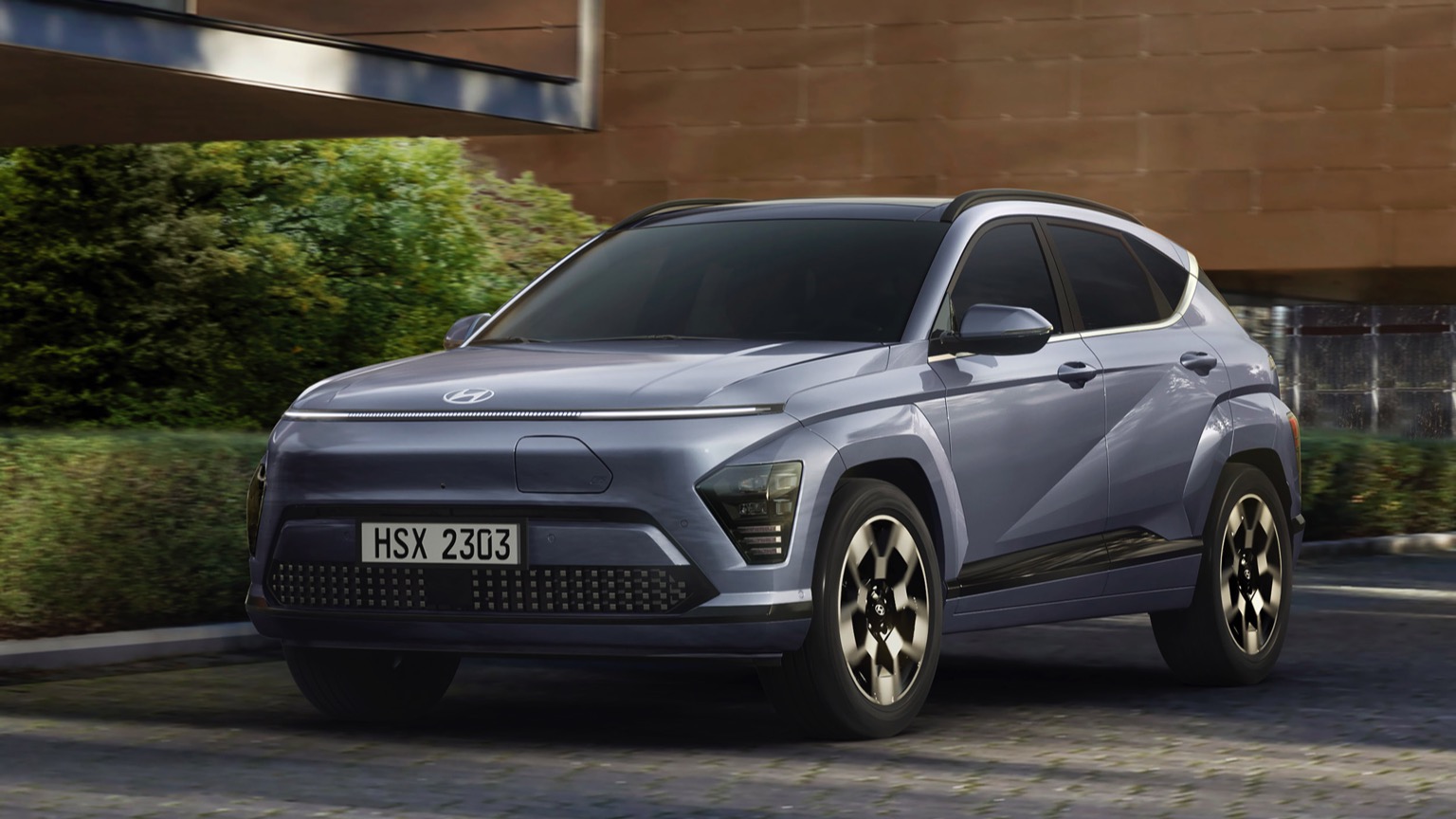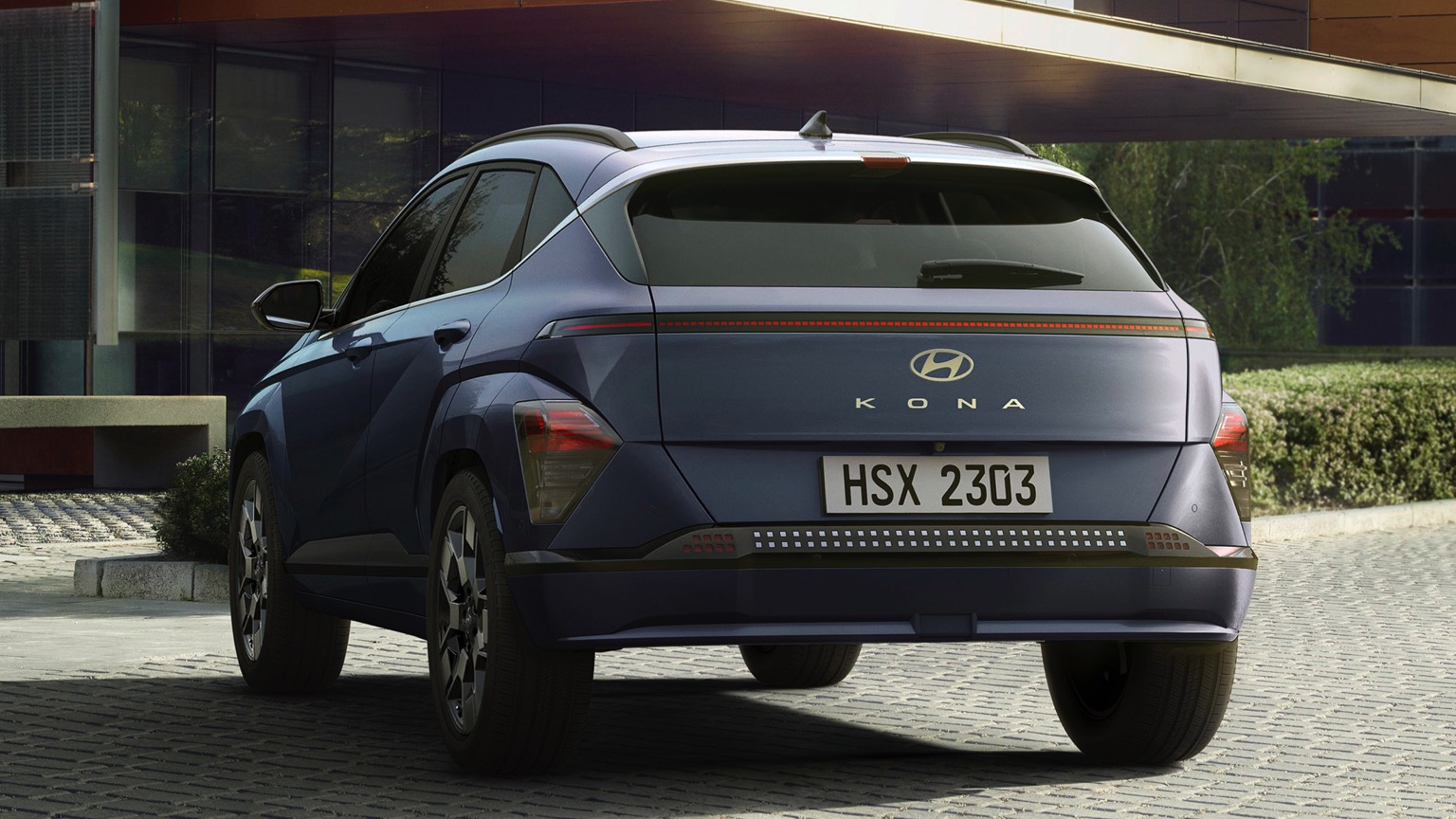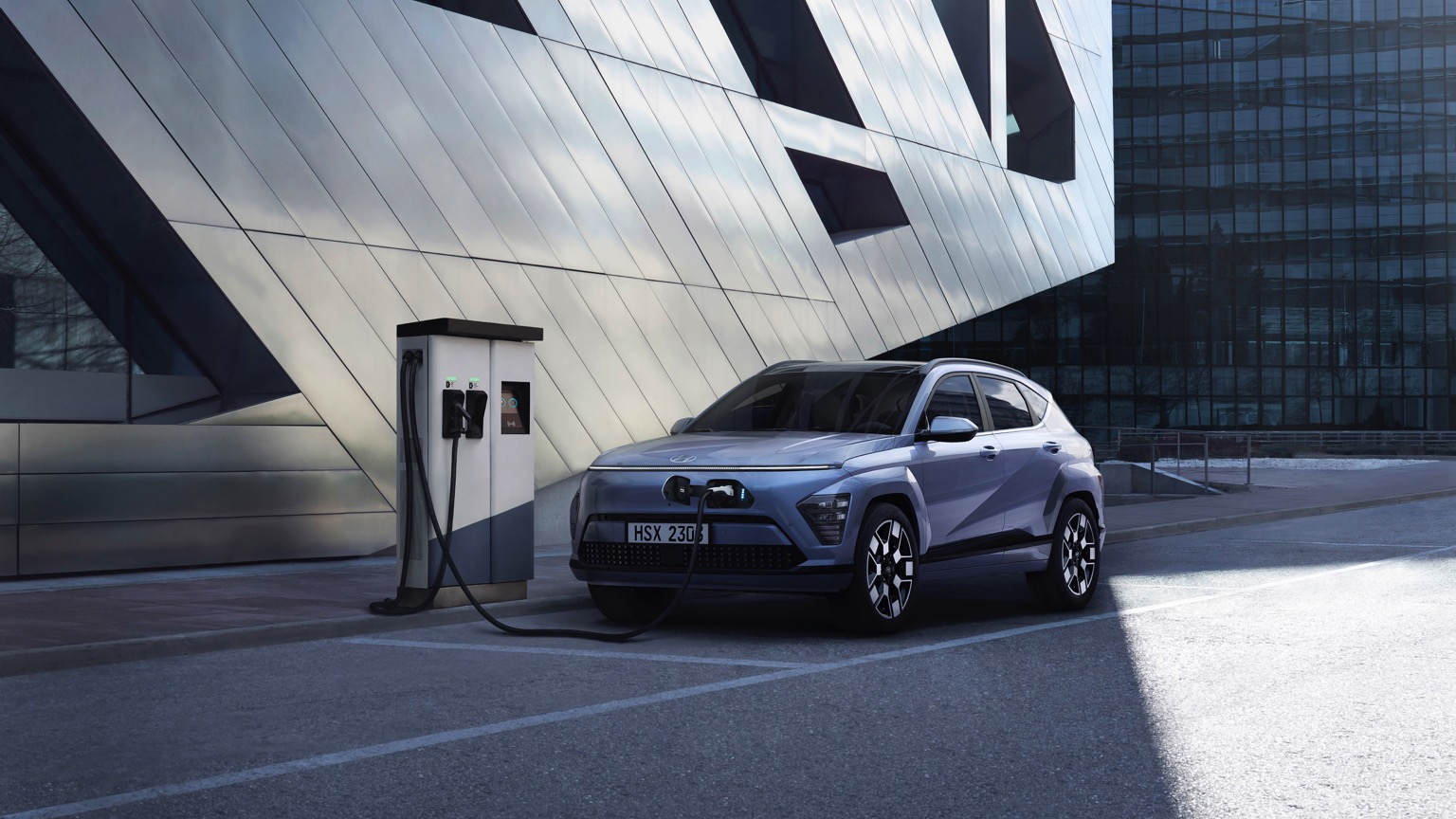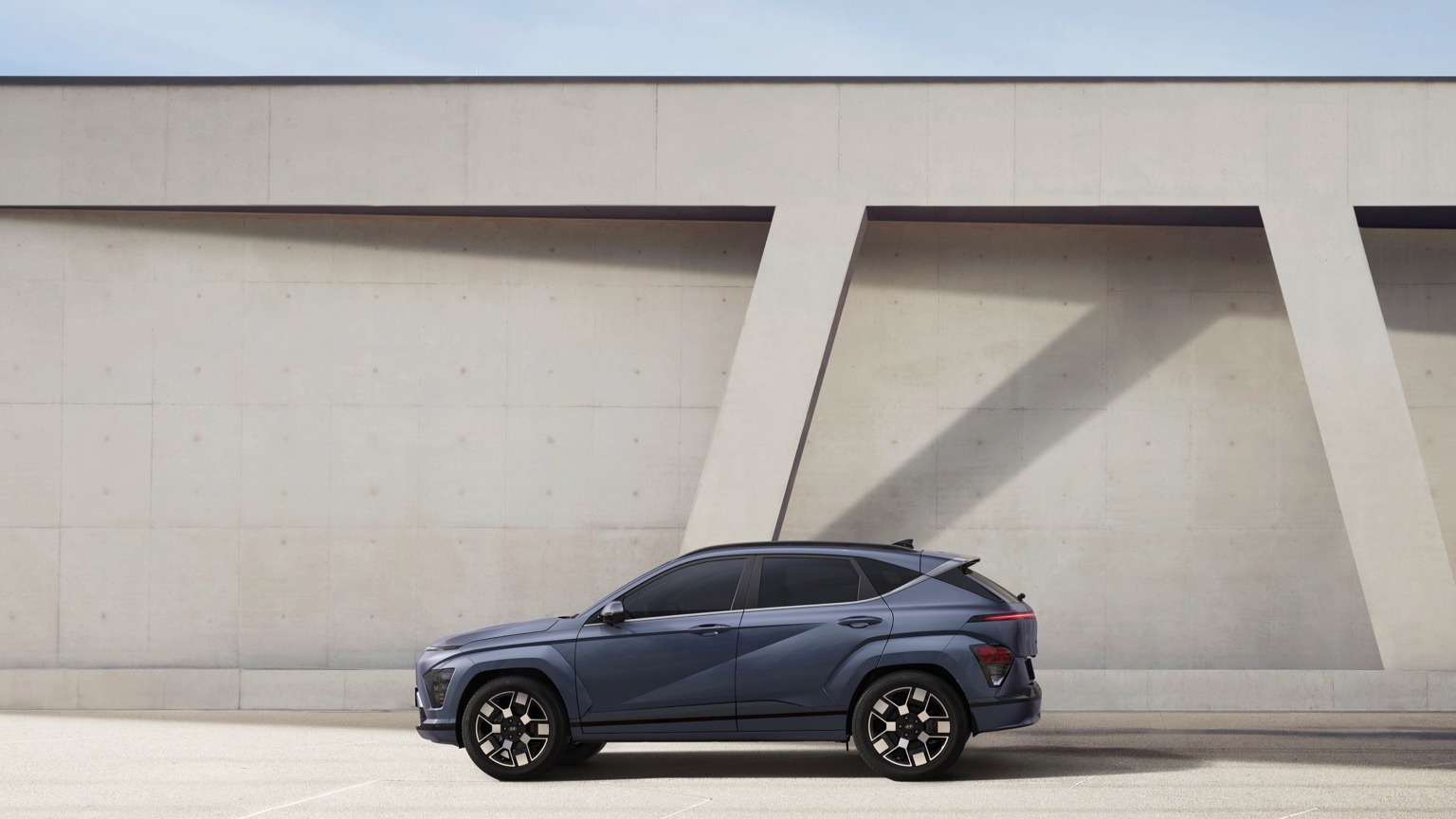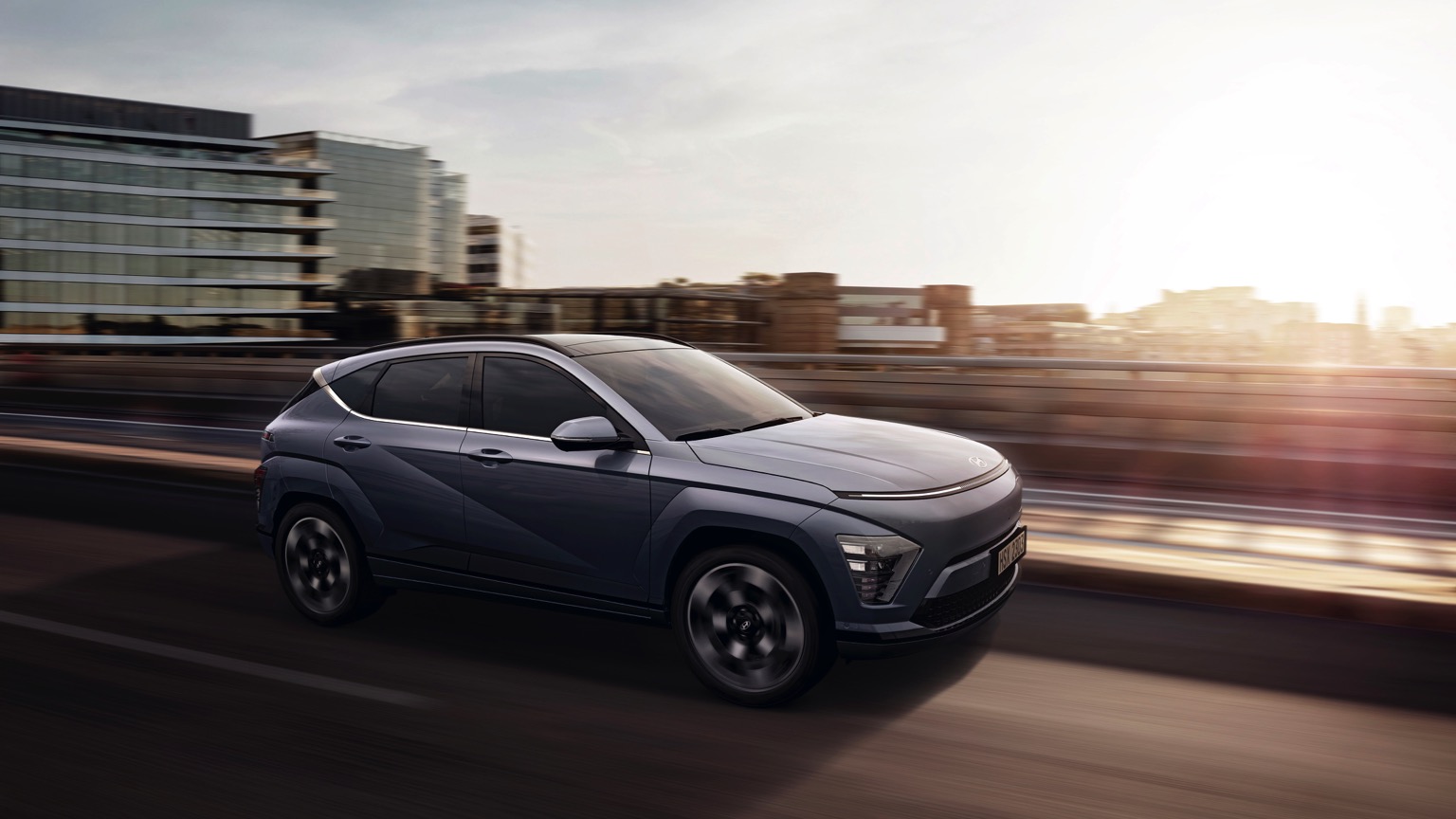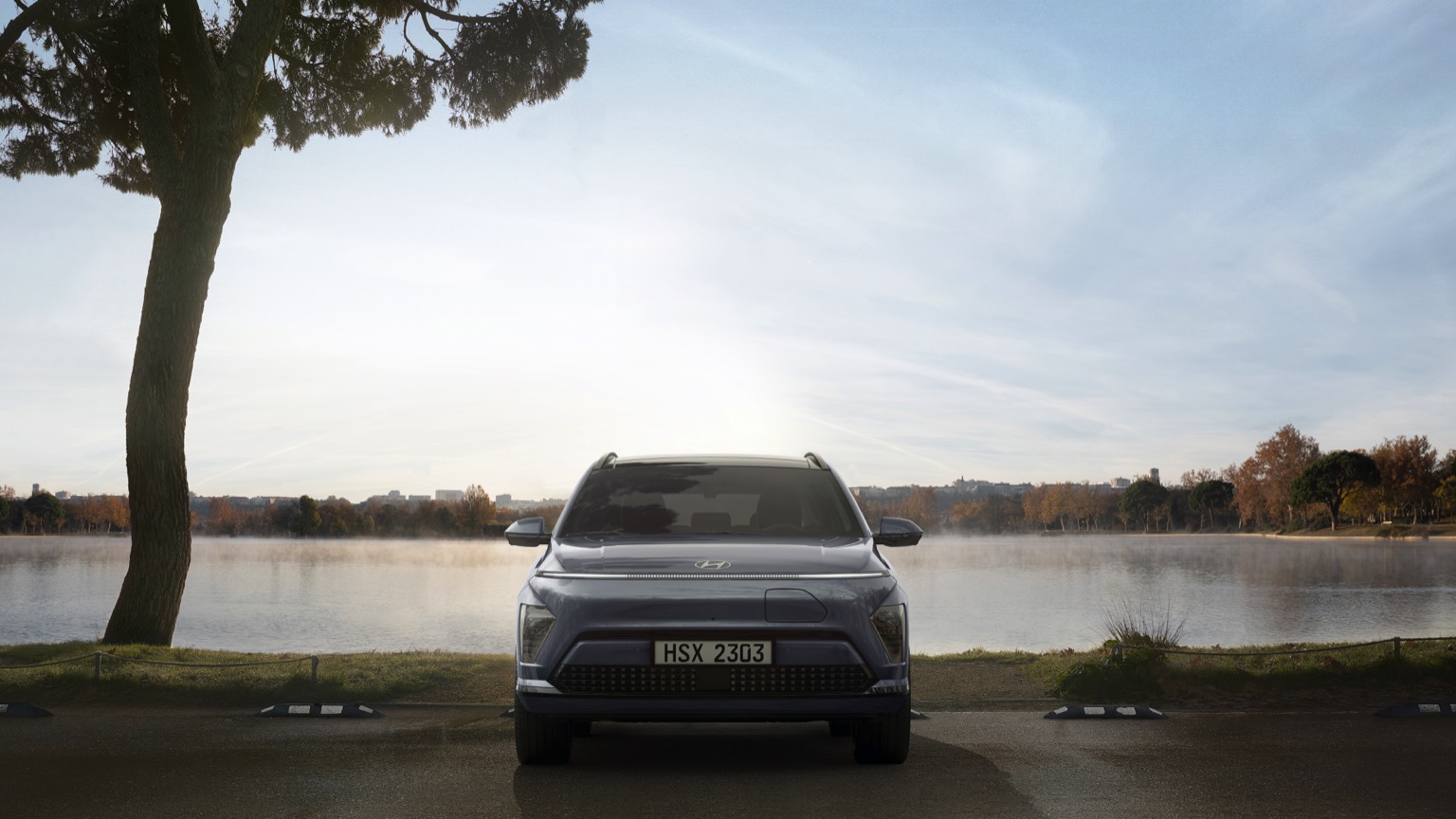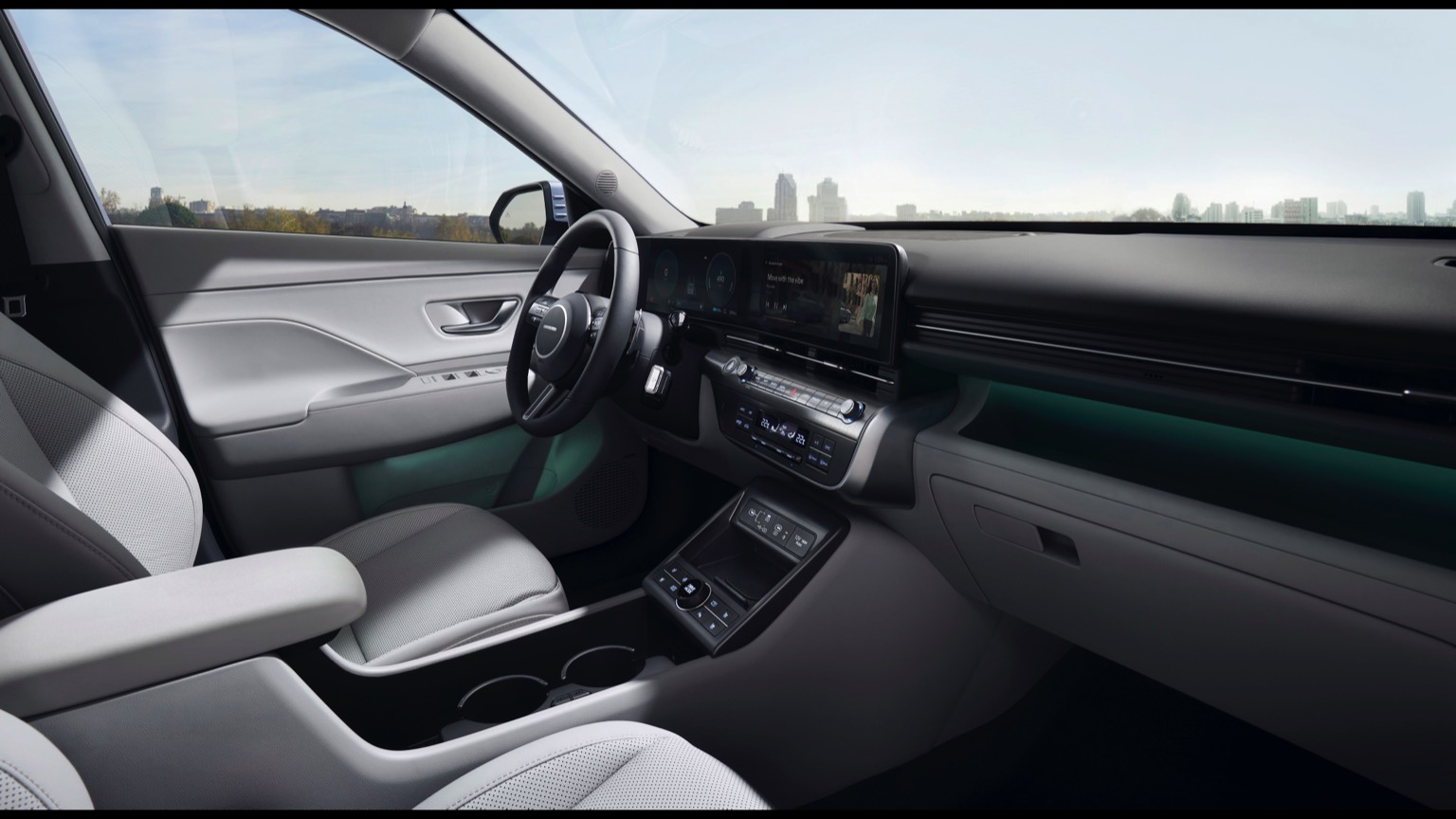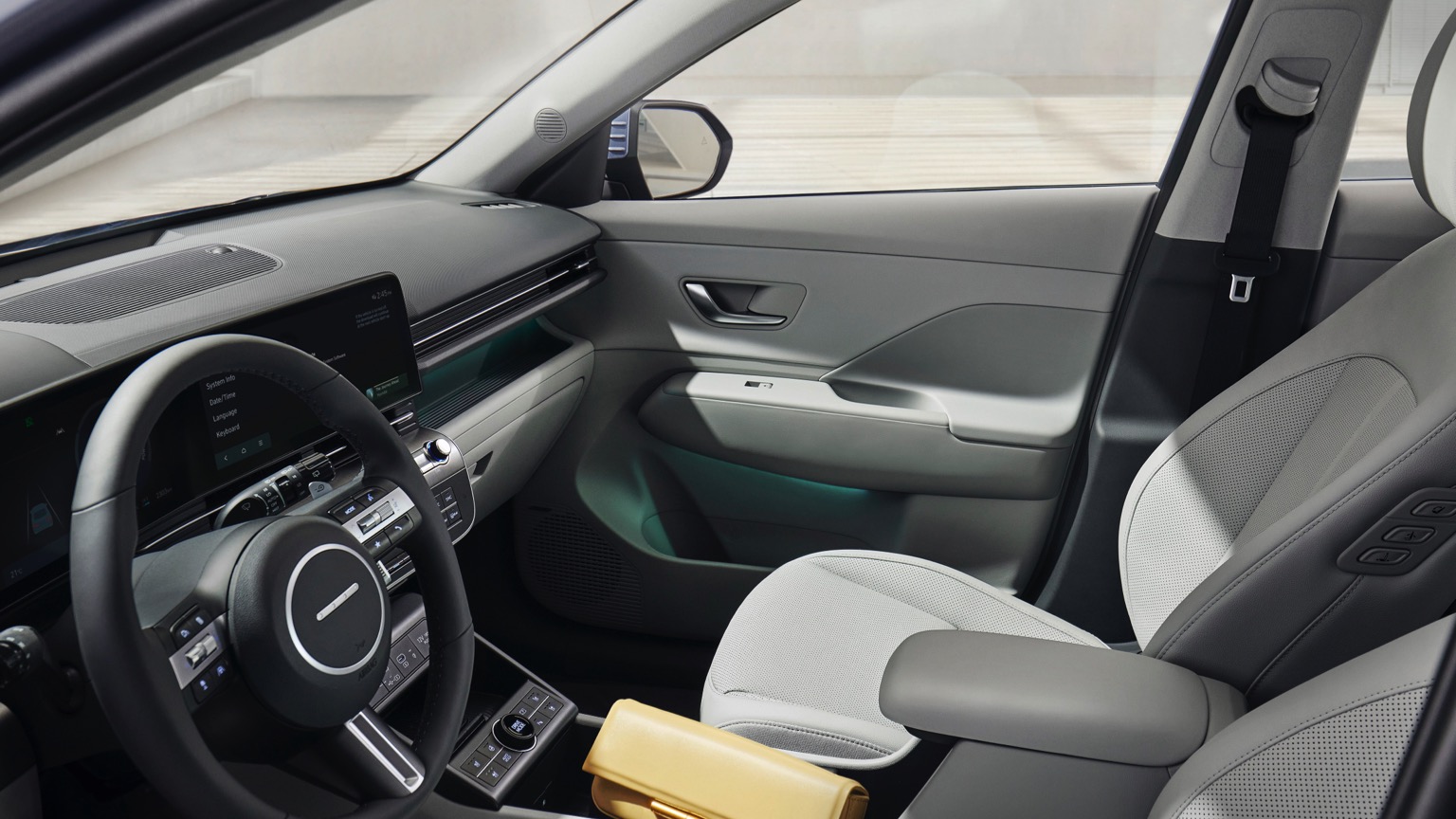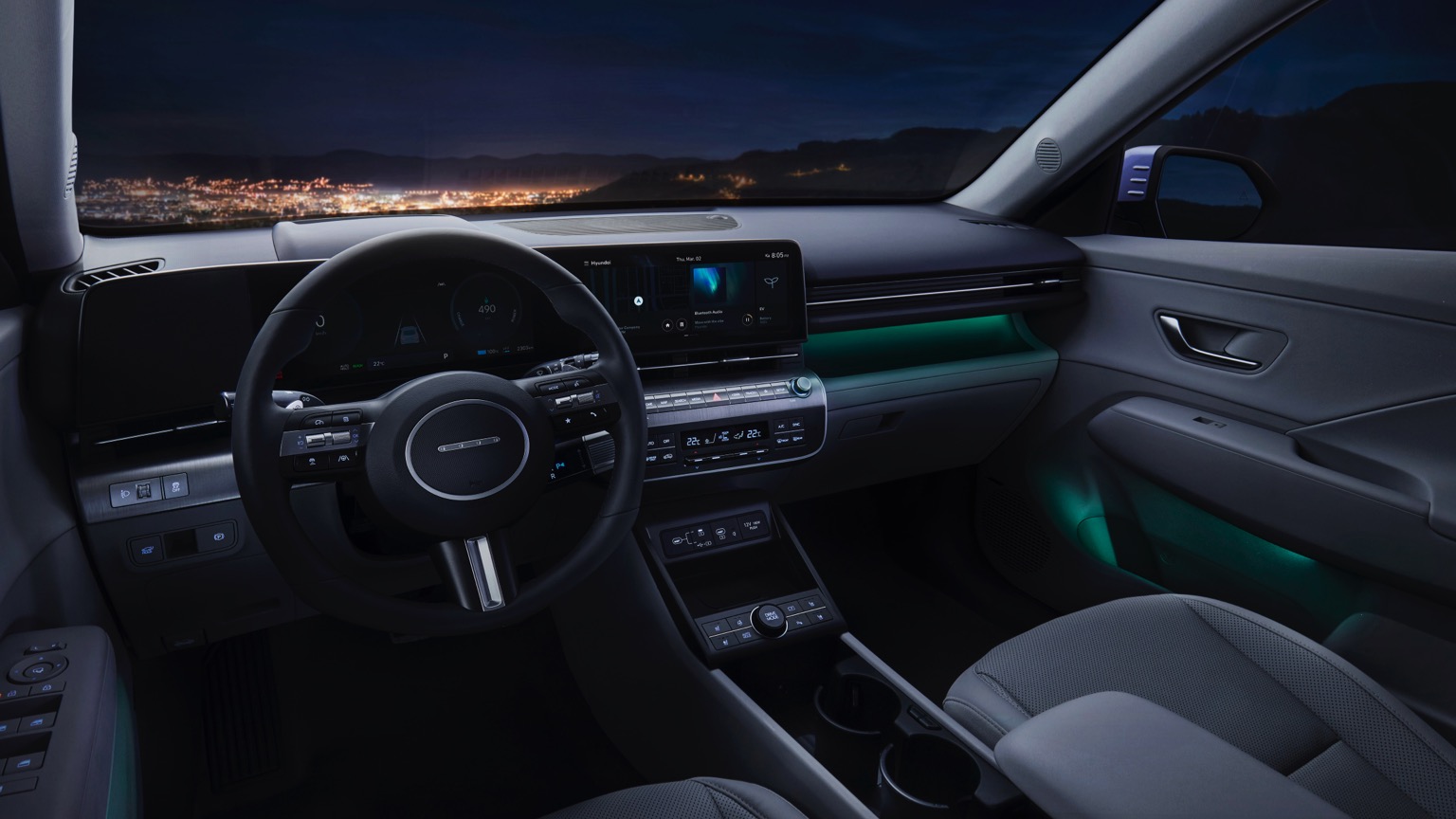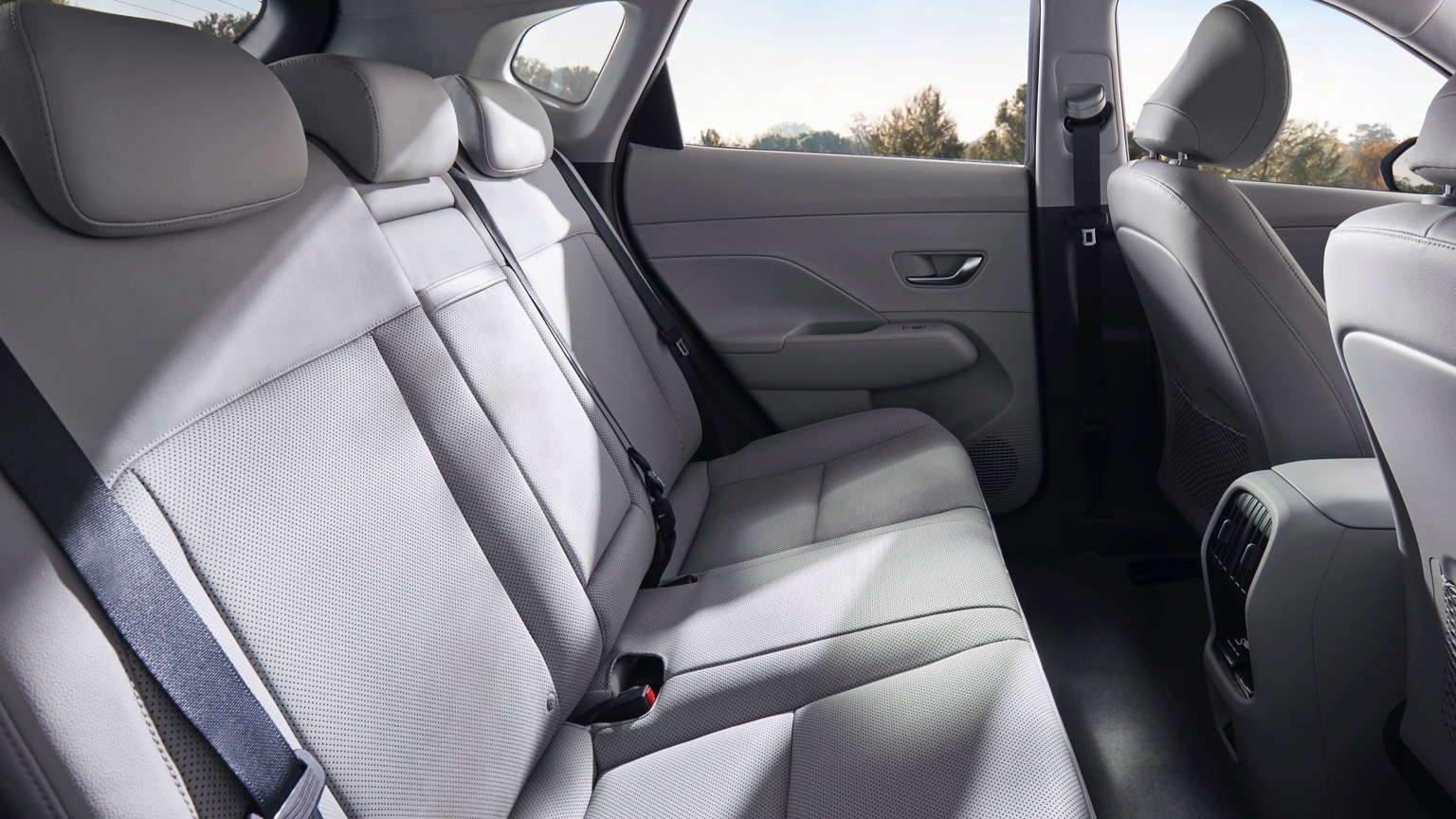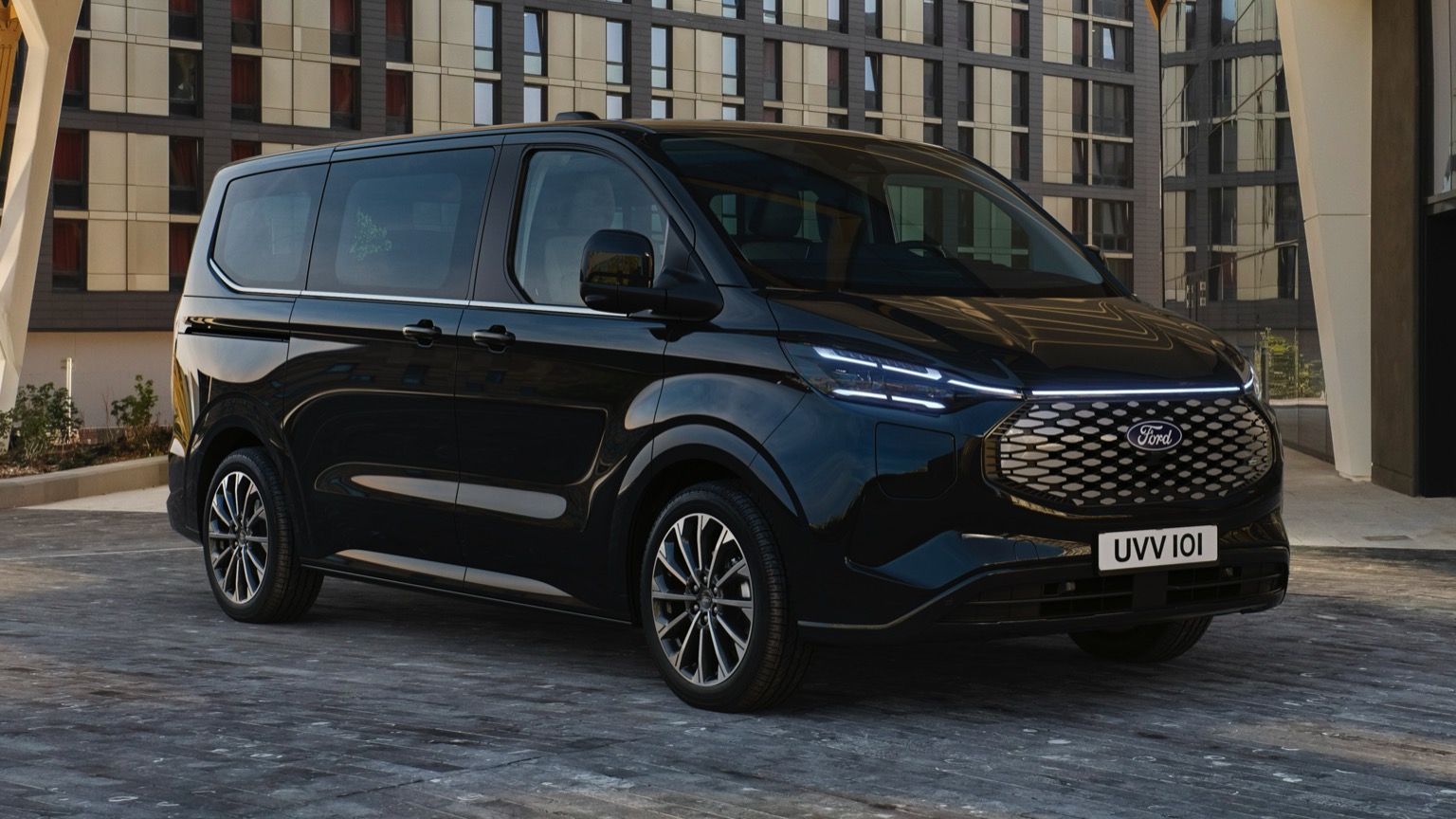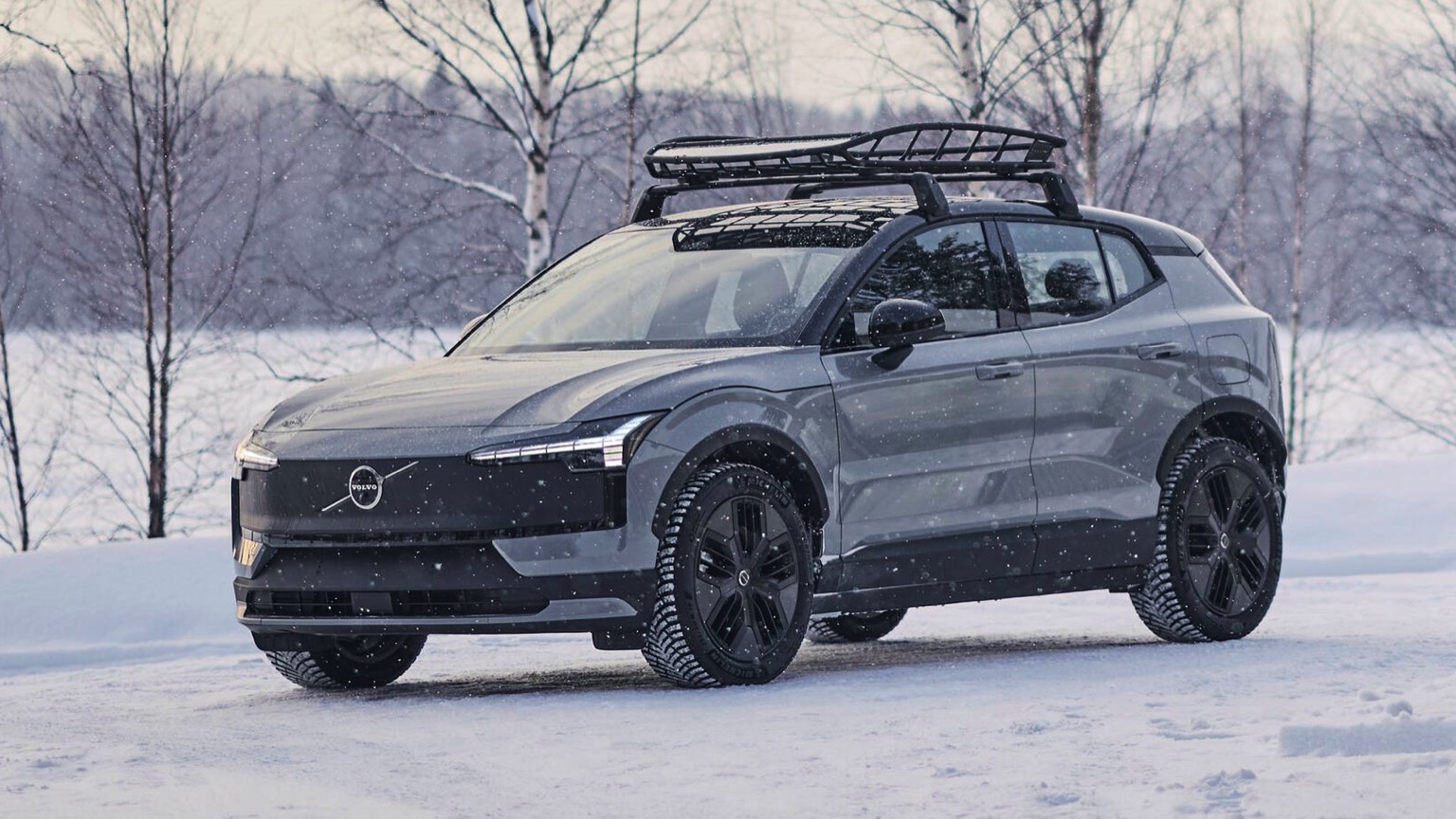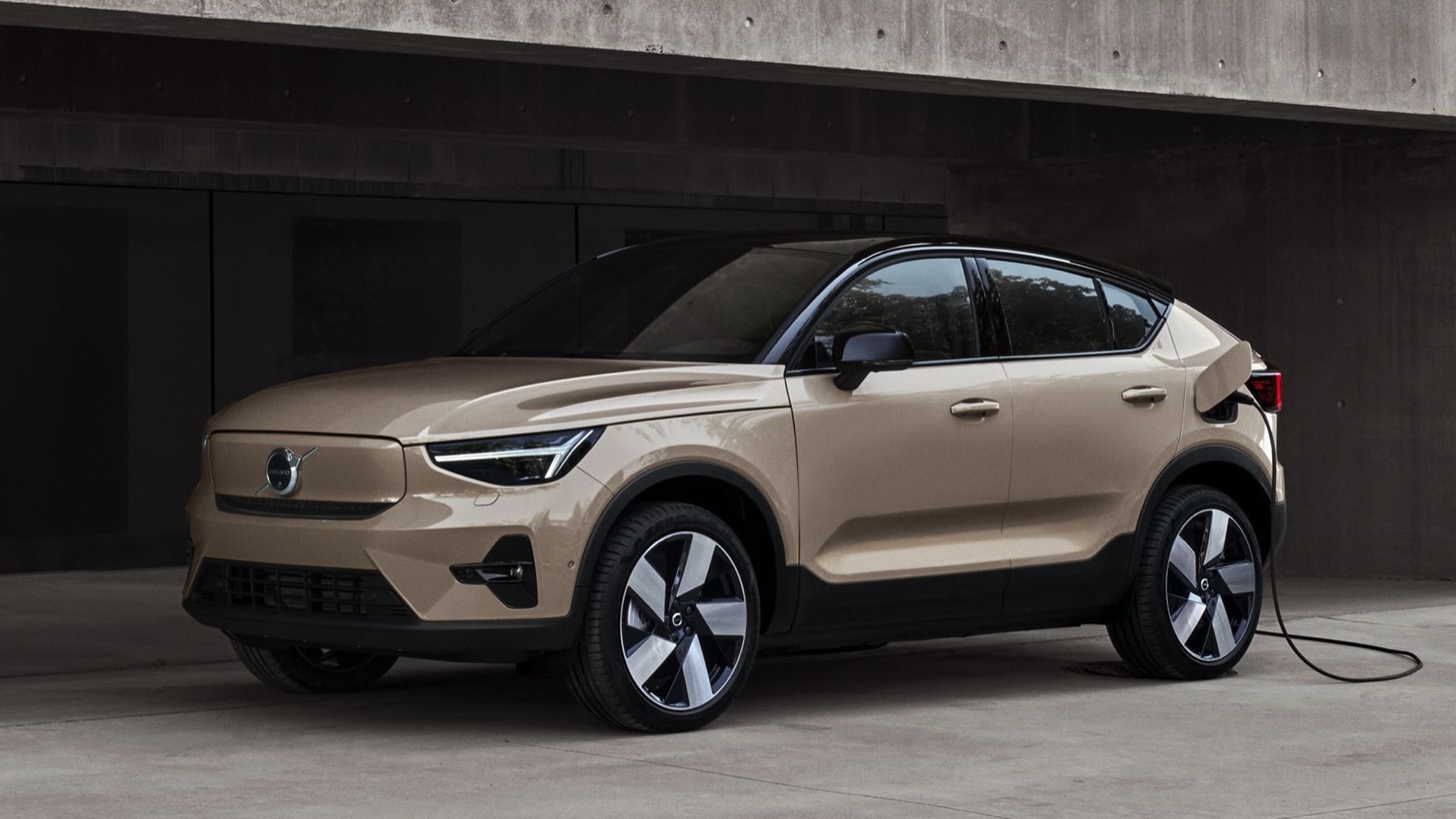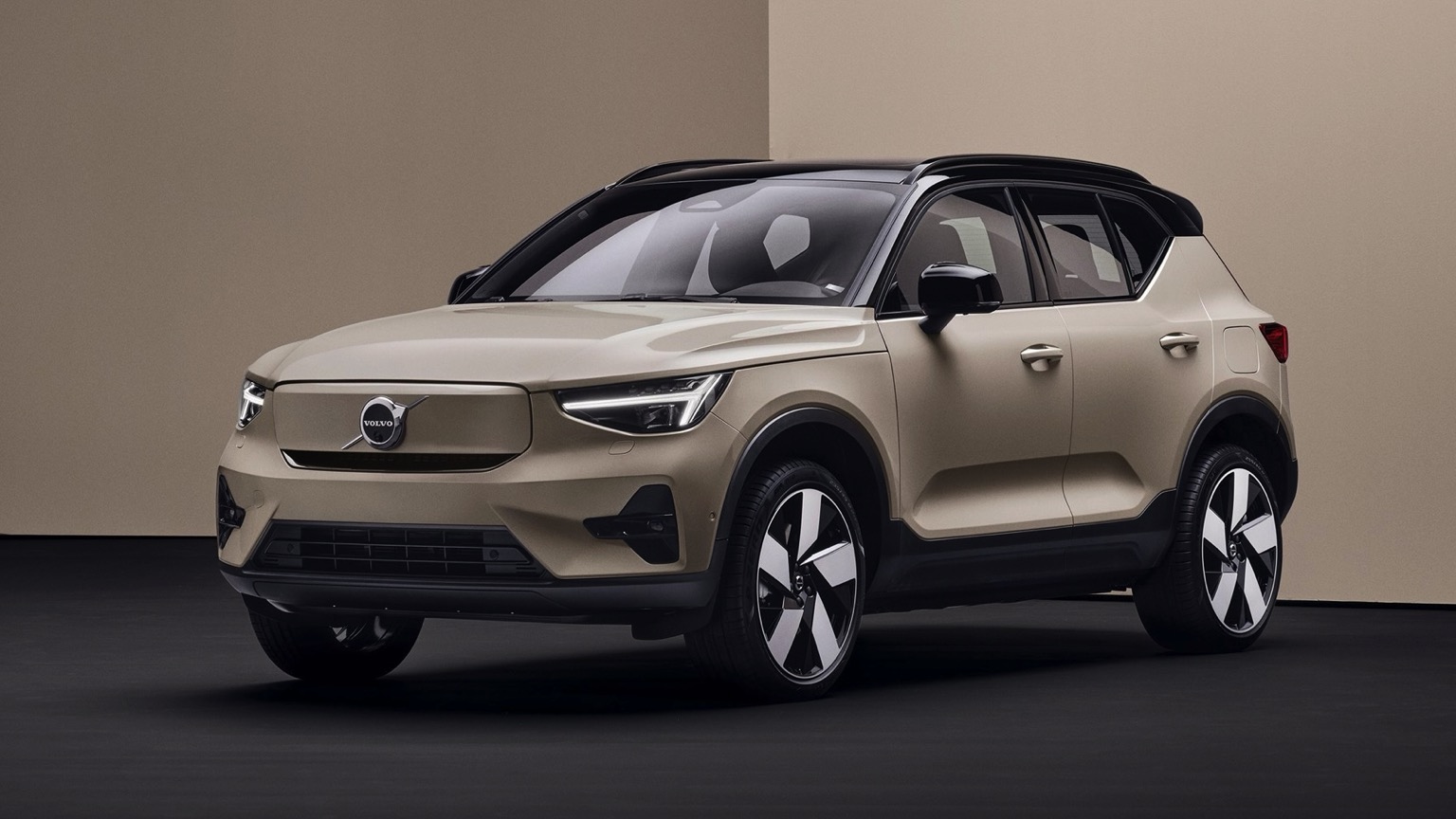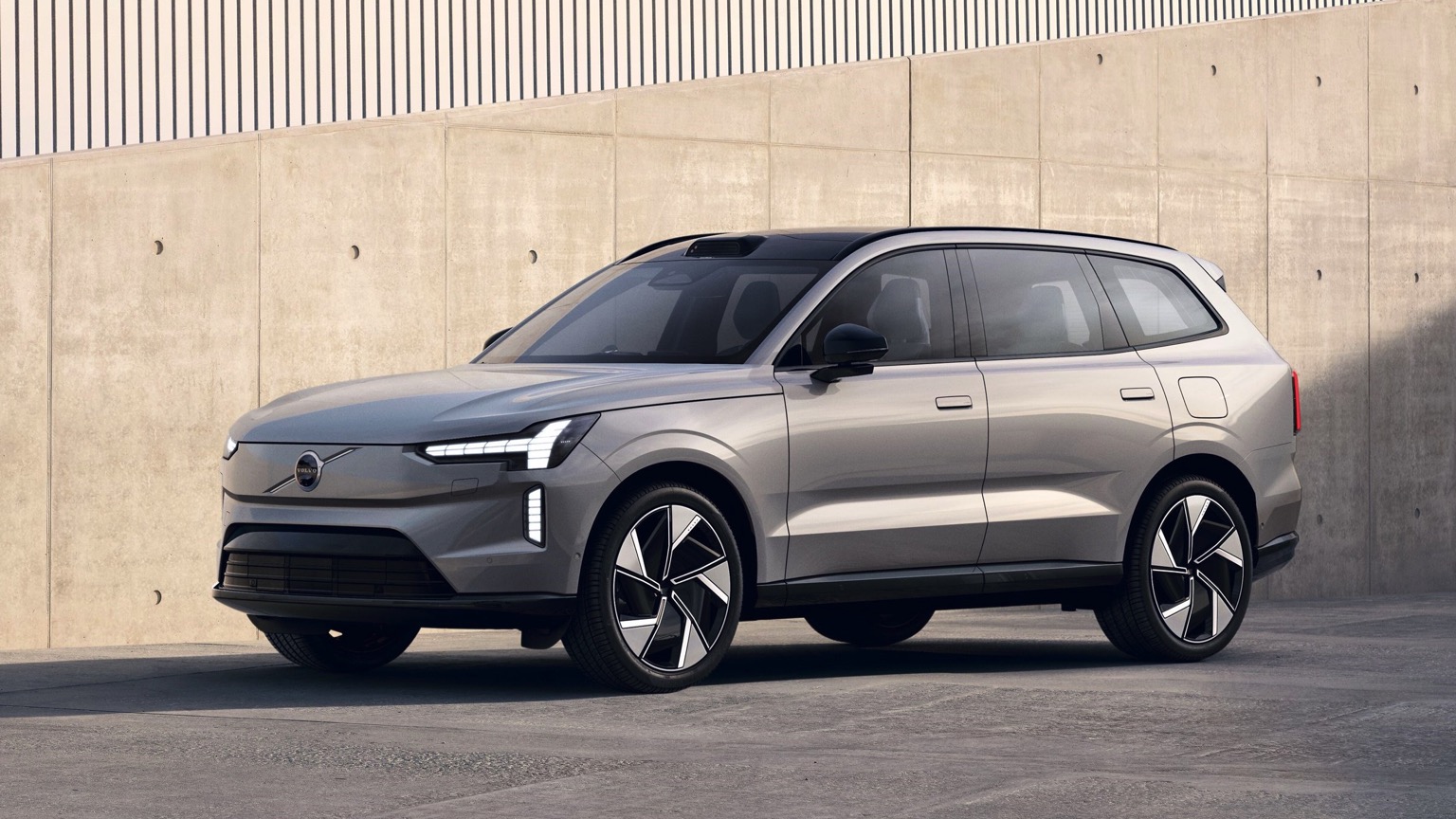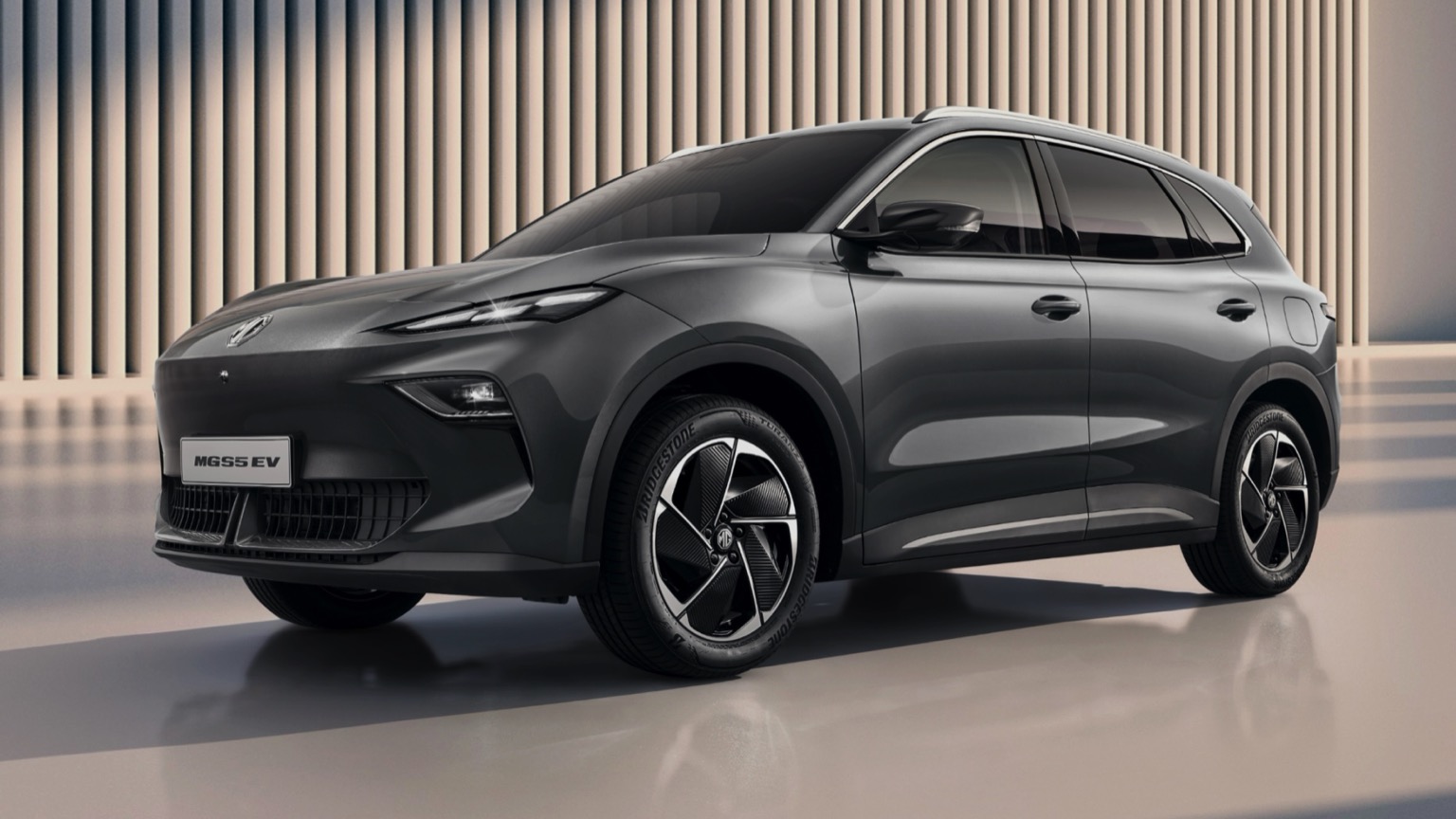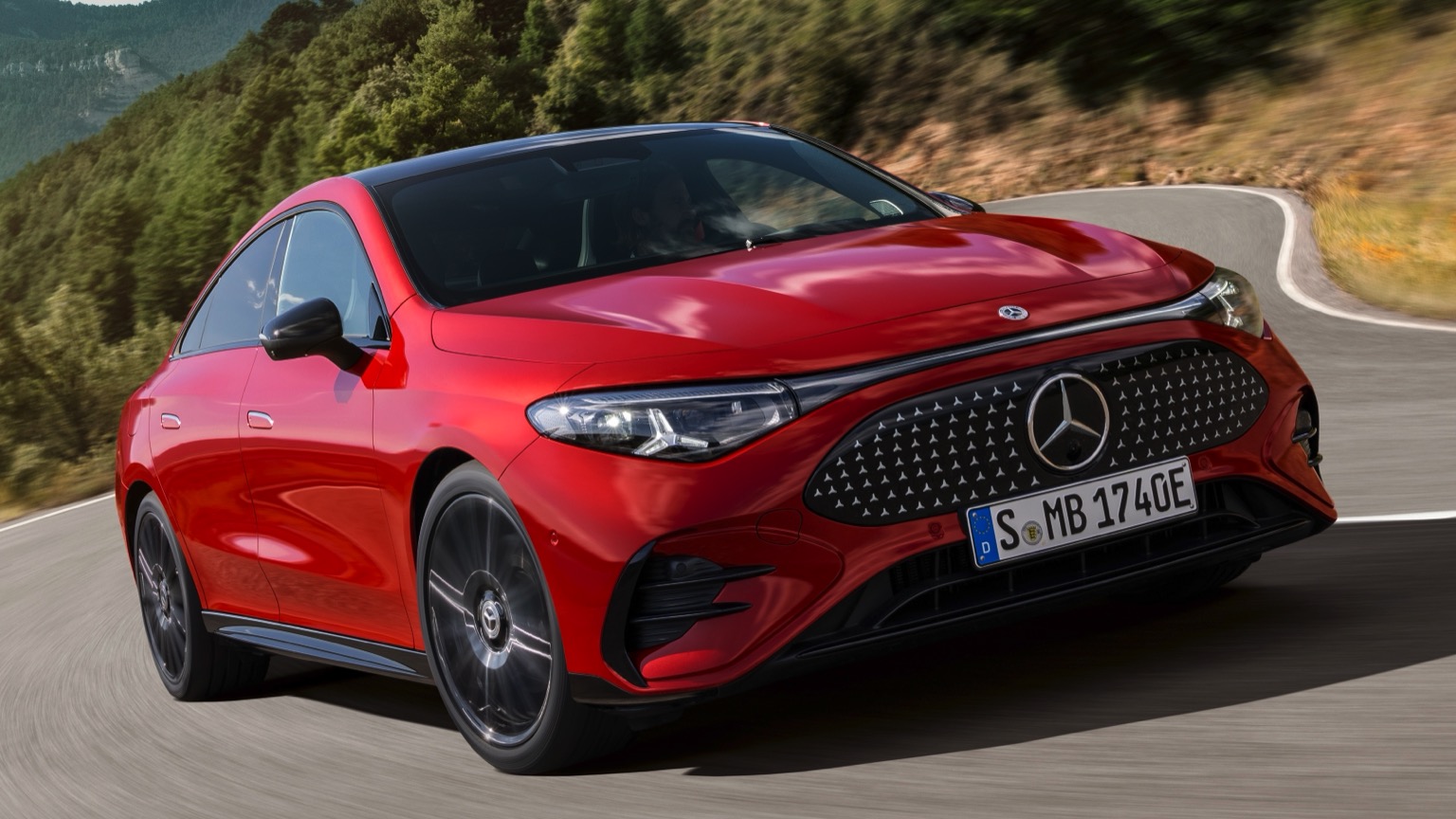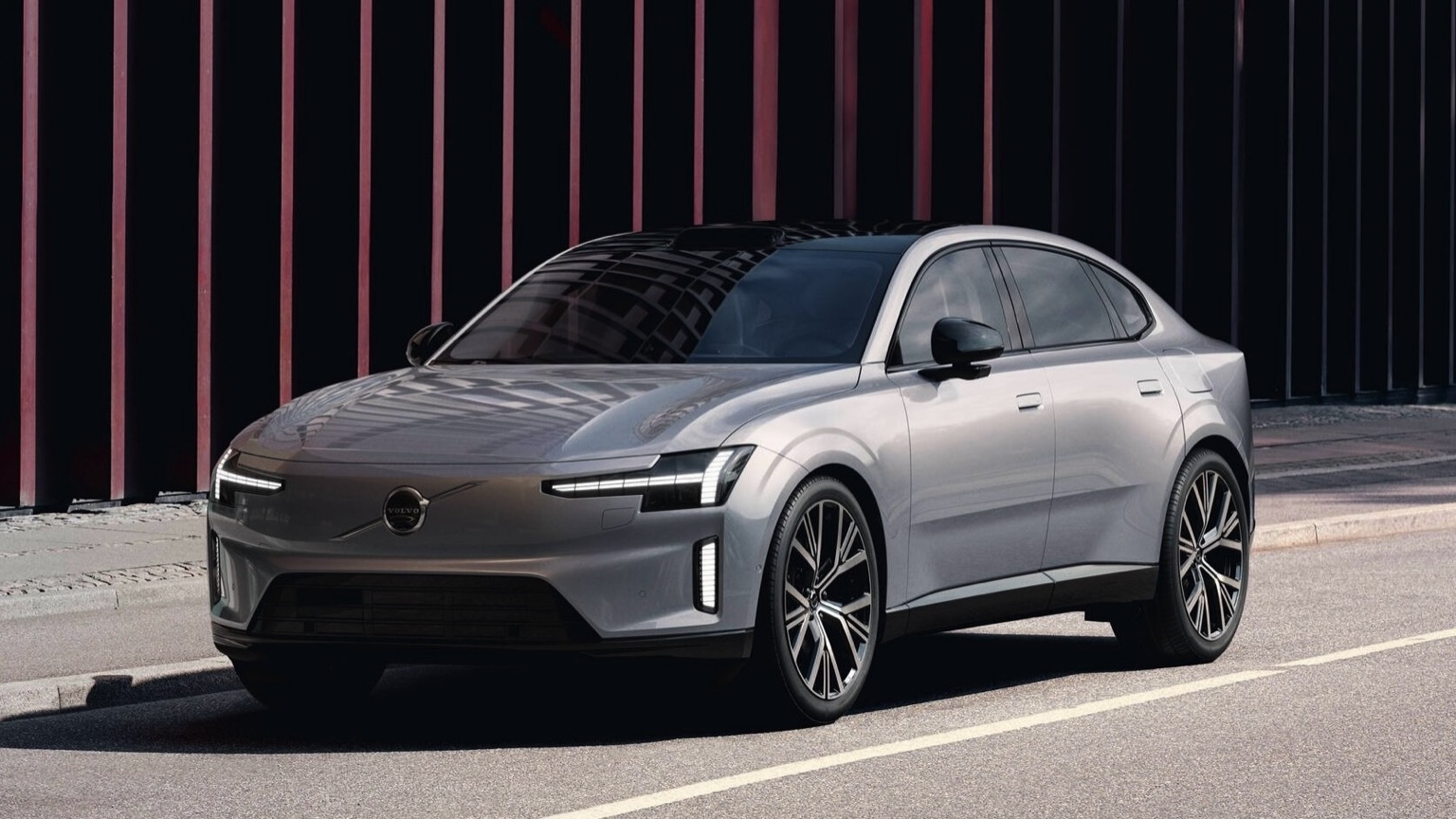Driving Range
In short, how many miles you can travel on a full charge. Is length important? Let’s not open that can of worms…
Efficiency
How many kWh of charge are needed to travel a set distance. The fewer needed, the more efficient your EV is. Easy!
Battery
The bigger the battery, the more power it can hold. In essence, fewer stops needed to top up your charge. Ahh, simplicity!
Top Speed
The maximum speed you can reach with your foot pressed hard to the floor. Important when escaping a zombie apocalypse, we assume.
Seats
Well, you don’t want to have to leave anybody at home… or do you?
Body
From stylish SUVs and compact crossovers, to curvaceous coupes and handy hatchbacks, there’s a perfect shape for everyone!
Isofix
The safe way to attach a child seat. Typically, these are hidden in the join between the back seats, alongside the crumbs from your last meal deal.
Safety Rating
A measure that considers the amount of safety kit installed, how a vehicle performs in crash testing and how safe it is for both pedestrians and cyclists.
| City - Cold Weather | 235 miles |
| Highway - Cold Weather | 170 miles |
| Combined - Cold Weather | 200 miles |
| City - Mild Weather | 360 miles |
| Highway - Mild Weather | 220 miles |
| Combined - Mild Weather | 280 miles |
Indication of real-world range in several situations. Cold weather: 'worst-case' based on -10°C and use of heating. Mild weather: 'best-case' based on 23°C and no use of A/C. For 'Highway' figures a constant speed of 110 km/h is assumed. The actual range will depend on speed, style of driving, weather and route conditions.
| Charge Port | Type 2 |
| Port Location | Front Side - Middle |
| Charge Power | 11 KW AC |
| Charge Time | 7hr |
| Charge Speed | 34 mph |
| Fastcharge Port | CCS |
| FC Port Location | Front Side - Middle |
| Fastcharge Power (max) | 105 |
| Fastcharge Time | 34m |
| Fastcharge Speed | 290 mph |
General Charging (0 - 100%)
Charging is possible by using a regular wall plug or a charging station. Public charging is always done through a charging station. How fast the EV can charge depends on the charging station (EVSE) used and the maximum charging capacity of the EV
| Charging Point:Charging Point | Power:Power | Time:Time |
|---|---|---|
| Charging Point:Wall Plug | Power:2.3 kW | Time:33hr 30m |
| Charging Point:1-Phase 16A | Power:3.68 kW | Time:21hr |
| Charging Point:1-Phase 32A | Power:7.36 kW | Time:10hr 30m |
| Charging Point:3-Phase 16A | Power:3.68 kW | Time:7hr |
| Charging Point:3-Phase 32A | Power:7.36 kW | Time:7hr |
Rapid Charging (10 - 80%)
Rapid charging enables longer journeys by adding as much range as possible in the shortest amount of time. Charging power will decrease significantly after 80% state-of-charge (SoC) has been reached.
| Charging Point:Charging Point | Average Power:Average Power | Time:Time |
|---|---|---|
| Charging Point:CCS 50 | Average Power:48 kW | Time:1hr |
| Charging Point:CCS 150 | Average Power:86 kW | Time: 34m |
| EVDB Real Range | 240 miles |
| EVDB Vehicle Consumption | 273 Wh/mi |
| EVDB CO2 Emissions | 0 g/mi |
| EVDB Vehicle Fuel Equivalent | 1.48 l/100mi |
| WLTP Real Range | 319 miles |
| WLTP Rated Consumption | 23.7 Wh/mi |
| WLTP Vehicle Consumption | 20.5 Wh/mi |
| WLTP CO2 Emissions | 0 g/mi |
| WLTP Rated Fuel Equivalent | 1.71 l/100mi |
| WLTP Vehicle Fuel Equivalent | 1.98 l/100mi |
| Acceleration 0 - 100 km/h | 7.8 sec |
| Top Speed | 106 mph |
| Electric Range* | 240 miles |
| Total Power* | 160 kWh |
| Total Torque* | 255 Nm |
| Drive | Front |
| Safety Rating | |
| Rating Year | 2023 |
| Adult Occupant | 80% |
| Child Occupant | 83% |
| Vulnerable Road Users | 64% |
| Safety Assist | 60% |
For more details on the safety rating of this vehicle, visit euroncap.com
| Nominal Capacity | 68.5 kWh |
| Battery Type | Lithium-ion |
| Number of Cells | N/A |
| Architecture | 400 V |
| Useable Capacity | 65.4 kWh |
| Cathode Material | N/A |
| Pack Configuration | N/A |
| Nominal Voltage | 399 V |
| Length | 4355 mm |
| Width | 1825 mm |
| Width (with mirrors) | N/A |
| Height | 1575 mm |
| Wheelbase | 2660 mm |
| Weight Unladen (EU) | 1773 kg |
| Gross Vehicle Weight (GVWR) | 2220 kg |
| Max. Payload | 522 kg |
| Cargo Volume | 466 L |
| Cargo Volume (Max) | 1300 L |
| Cargo Volume Frunk | 27 L |
| Roof Load | 100 kg |
| Tow Hitch Possible | Yes |
| Towing Weight Unbraked | 300 kg |
| Towing Weight Braked | 750 kg |
| Vertical Load Max | 100 kg |
| Seats | 5 |
| Isofix | No |
| Turning Circle | 10.6m |
| Platform | N/A |
| Car Body | SUV |
| Segment | C |
| Roof Rails | Yes |
| EV Dedicated Platform | No |
* = estimated value. Average energy consumption and range based on moderate drive style and climate. Real-life values may differ significantly. Pricing information might not be actual for some regions. No rights can be derived from the information on this site.

Hyundai Kona Long Range EV
In a world where automotive excellence meets modern versatility, the Hyundai Kona EV emerges as a vibrant and dynamic embodiment of innovation and adventure. With its distinctive design, cutting-edge technology, and spirited performance, the Hyundai Kona EV is set to redefine your driving experience.
Whether you’re navigating the urban jungle or exploring the great outdoors, this compact SUV is ready to accompany you on your journey, making a bold statement wherever it goes.
Join us as we delve into the remarkable features and qualities that make the Hyundai Kona EV an exceptional vehicle in its class, redefining what it means to drive with style, comfort, and excitement.
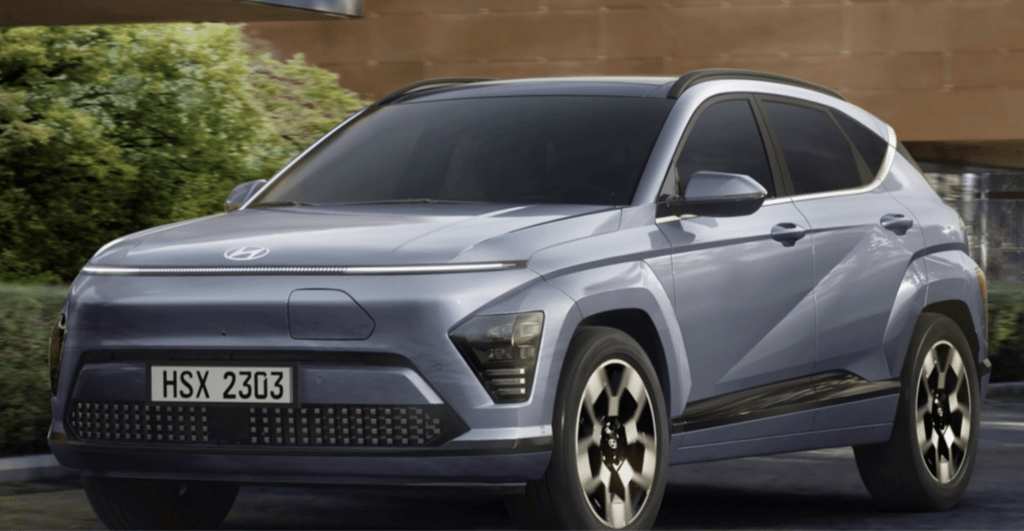
Is the Hyundai Kona reliable?
Although there is no official data yet for the new Hyundai Kona electric offering, Hyundai, as a manufacturer, scored incredibly well when it comes to user experience and reliability. The original Kona EV was top of the class in the best cars to own survey in 2021 and was an impressive overall 4th place score for reliability when compared to 75 other cars.
What is the range of the electric Hyundai Kona 64kWh?
240 miles**The range of the Hyundai Kona with the 64kWh battery, differs between 170 miles and 360 miles depending on your driving conditions and the type of road. Typically, the average range from a full charge will be around 240 miles.
How long does it take to charge the Hyundai Kona 64kWh?
9 hours and 8 minutes*
*Using a standard 7kWh charger, such as zappi it would take just over 9 hours to fully charge your battery. The Kona also has the capability to be charged on the 22kWh zappi, which would reduce this charging time down to 7 hours.
How much does it cost to charge the Hyundai Kona 64kWh?
£4.80*
*It could cost just £4.80 to charge the Hyundai Kona 64kWh battery when fully utilising off-peak charging on an Octopus Intelligent tariff, at 0.075p/kwh. In contrast, peak charging on a standard rate of 0.34p/kwh can cost £21.76 to charge up.
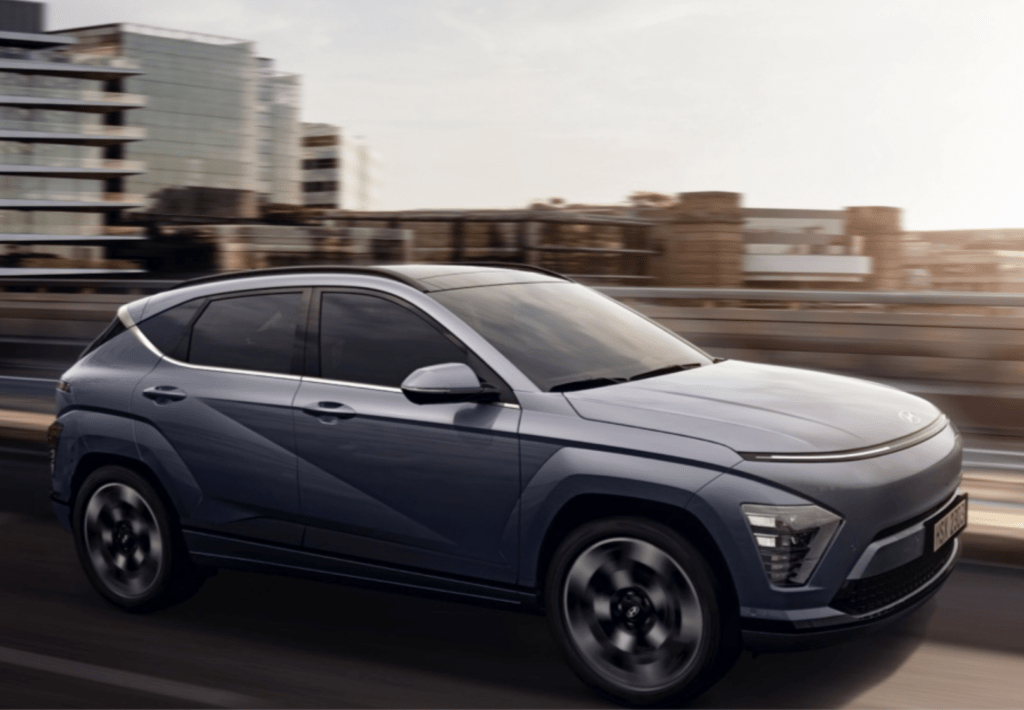
Where is the charging port on the Hyundai Kona 64kWh?
The charging port can be located behind a flap that would be a grille in a non-electric vehicle meaning easier access to public charging points regardless of which side of the station you have to park your car. The door to the charging point is also heated which allows you to charge your car even in extreme cold weather, a feature which many EVs don’t have.
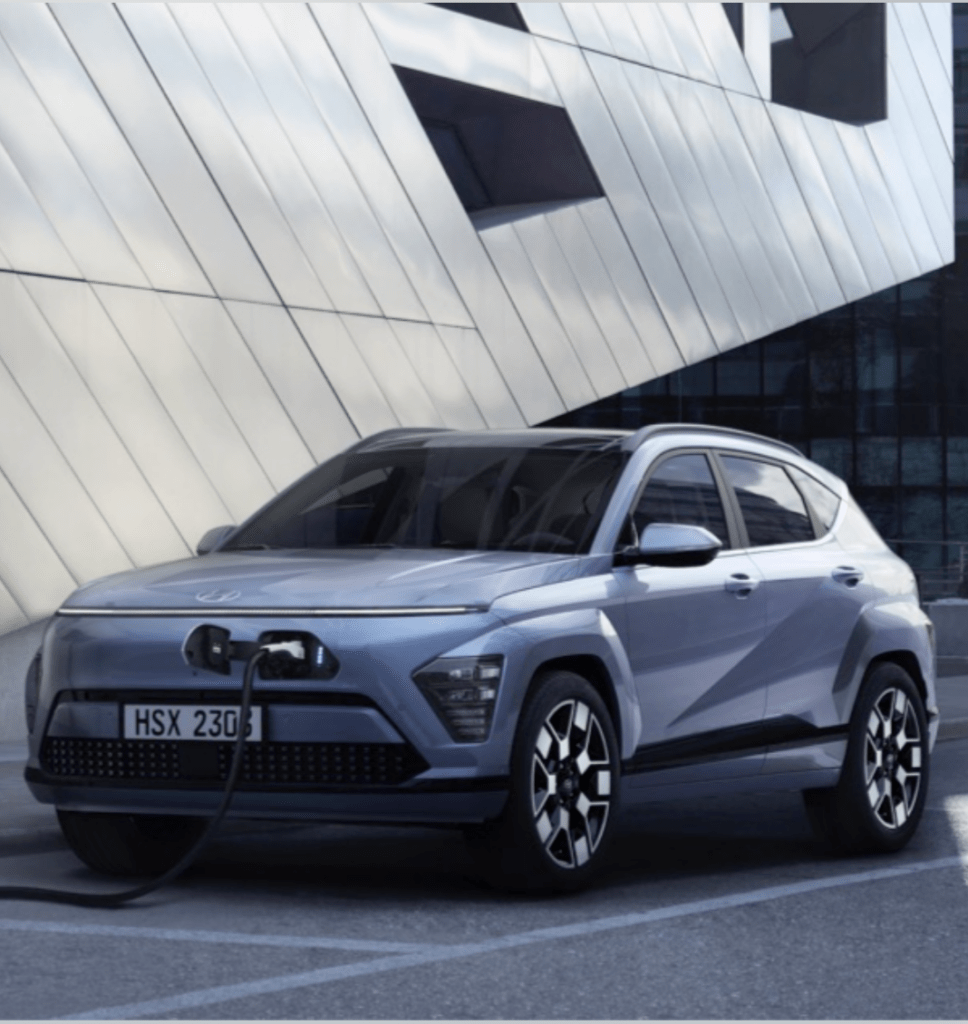
Can I charge the Hyundai Kona at a Tesla Supercharger?
As standard, the Hyundai Kona can accept a multitude of different chargers including the Tesla Supercharger network as well as standard 7kWh home chargers, like the zappi. The Hyundai Kona charges relatively quickly considering its size and distance capabilities.
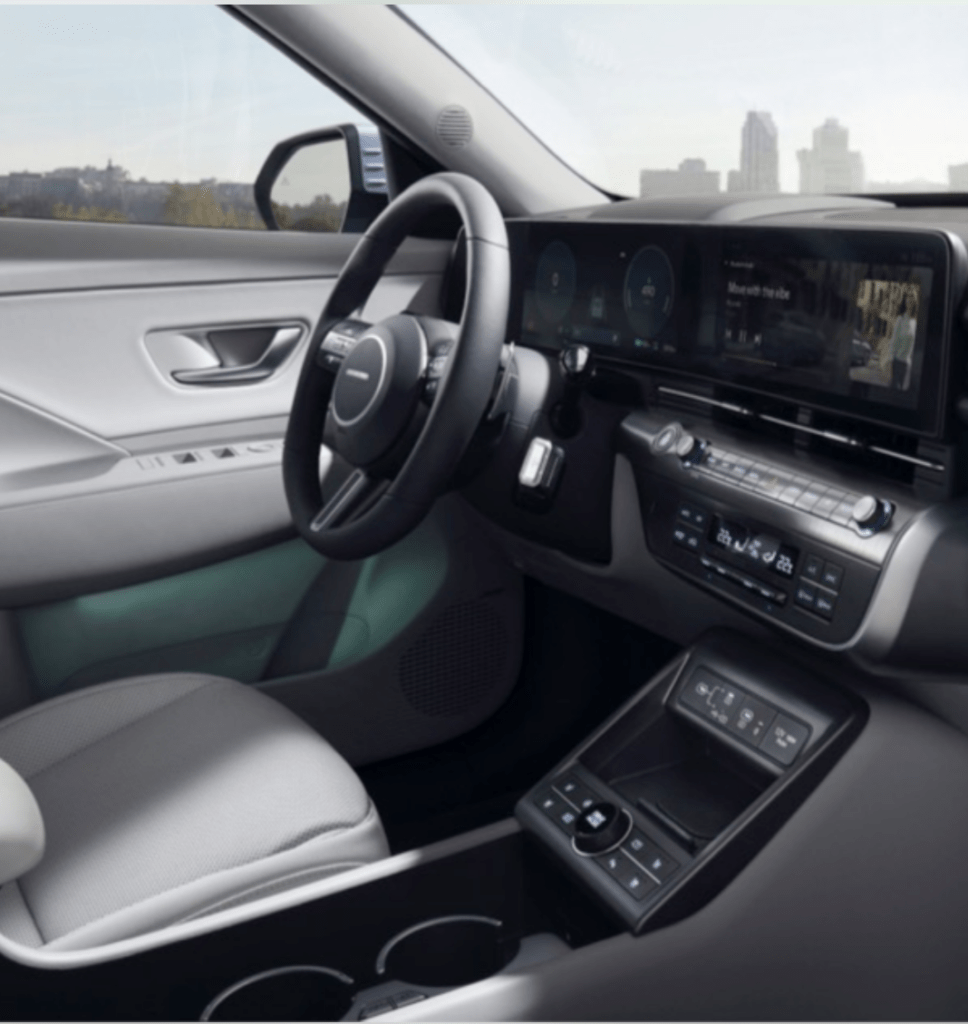
How much does the Hyundai Kona EV 64kWh cost?
The 64kWh model of the Hyundai Kona starts from £38,595* and can range up to £45,980* with all of the optional extras available to create a more comfortable experience for both driver and passenger. The smaller battery and range model, starts at £34,995*. This puts the Hyundai Kona as one of the cheaper EVs on the market and undercuts the BYD Atto 3. This is still around £10,000 more than the petrol offering of the same Hyundai Kona.
*prices correct as of October 2023.
Similar Electric Vehicles

